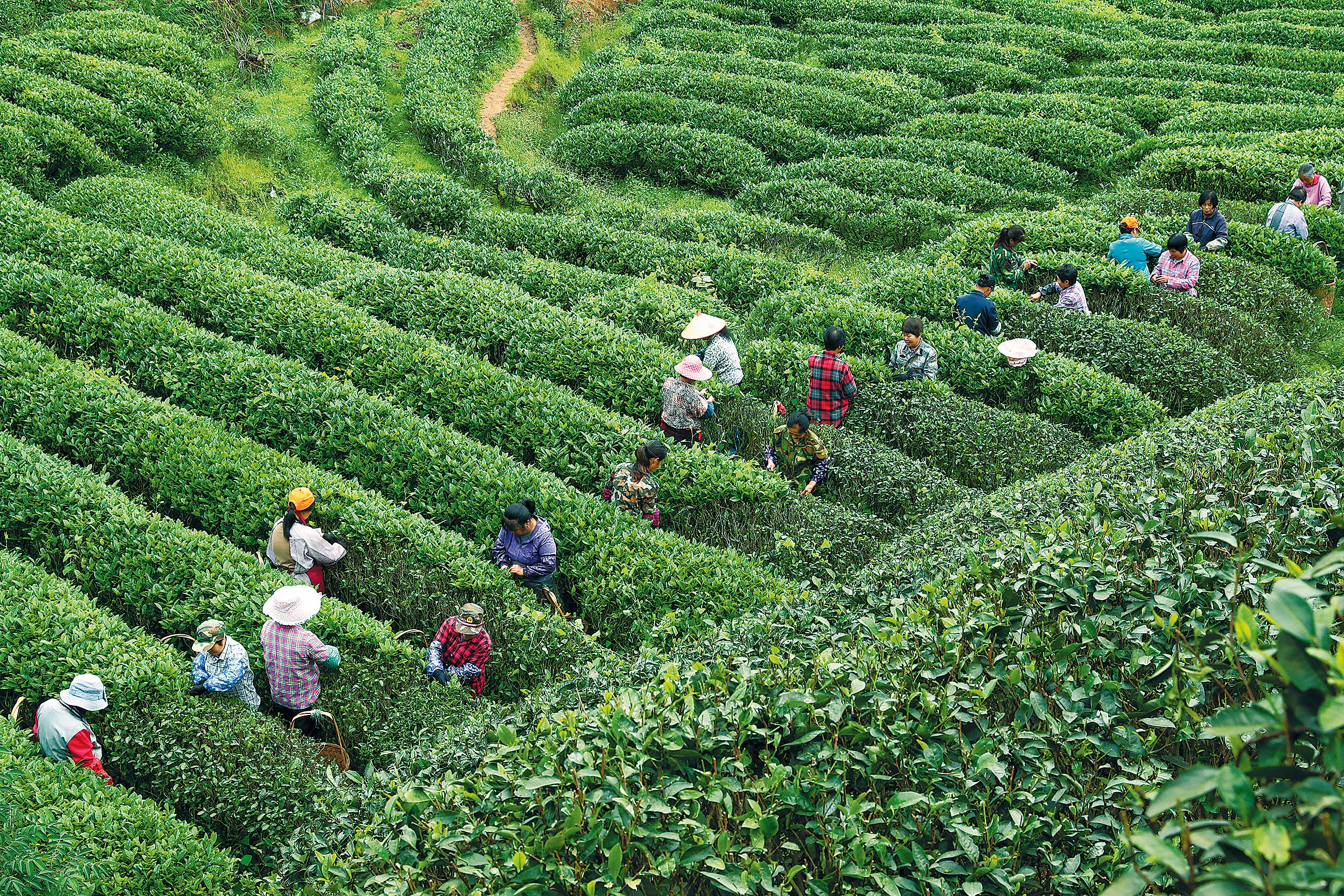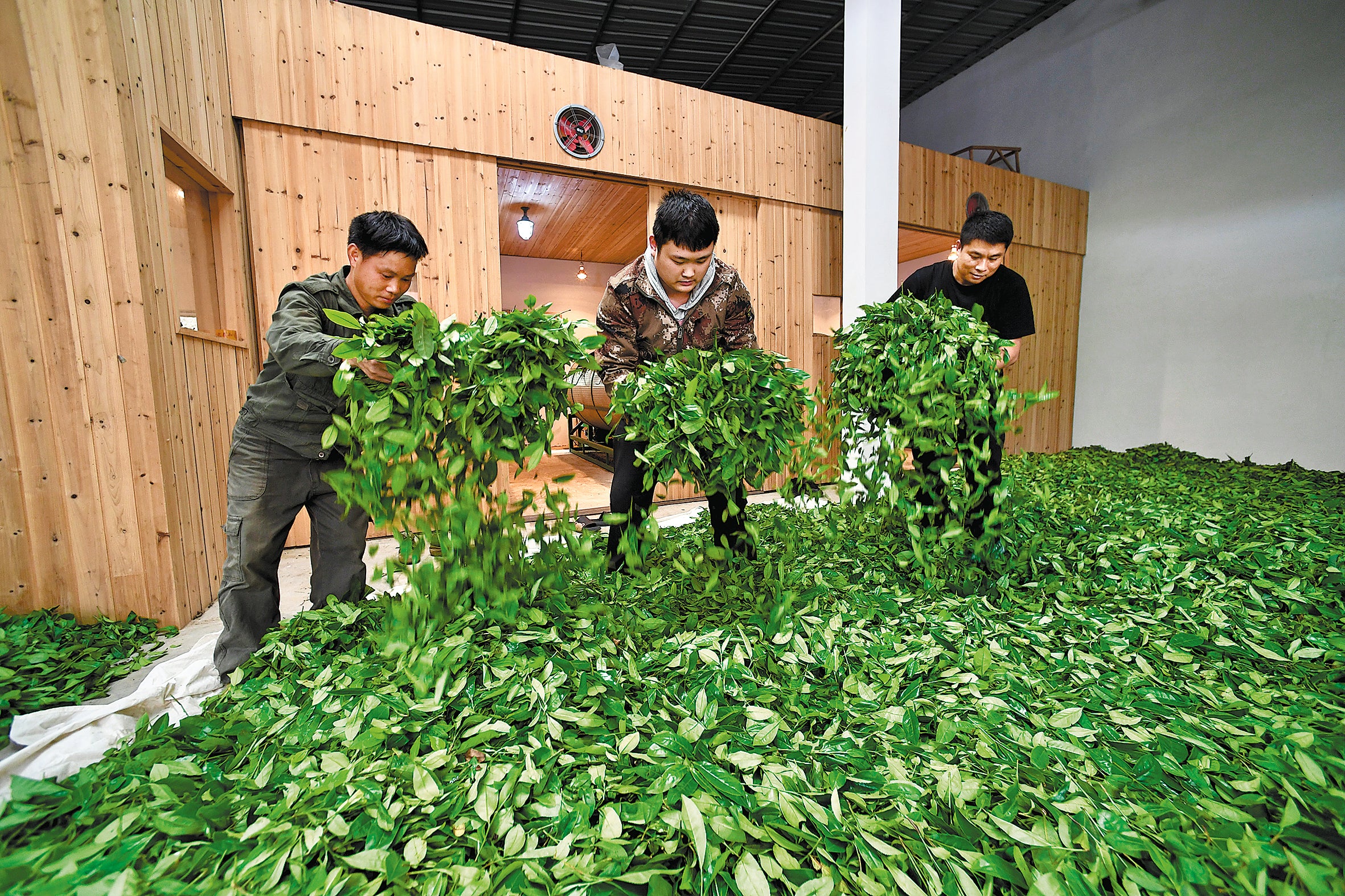Wuyishan National Park forges ahead with sustainable tea
THE ARTICLES ON THESE PAGES ARE PRODUCED BY CHINA DAILY, WHICH TAKES SOLE RESPONSIBILITY FOR THE CONTENTS

In recent years, the Wuyishan National Park, renowned for its breathtaking landscapes and prestigious tea industry, has taken significant steps to safeguard its traditional tea heritage and industry, while embracing technological advances to empower farmers and raise the incomes of local people.
Home to one of China’s largest and most diverse subtropical forests, Mount Wuyi is the only place in the country where Wuyi rock tea is grown.
“Wuyi rock tea, known for its mineral-rich floral aroma, possesses a distinctive and crucial fragrance that comes from the unique soil and rocks of the region,” said Huang Shengliang, an inheritor of China’s national-level intangible cultural heritage of Wuyi rock tea craftsmanship. “Only tea planted in our rocky soil can produce such a distinctive taste.”
With tea cultivation dating back more than 1,000 years, the mountain’s tea industry has a rich history. The area has been providing tea for people at home and abroad since the first century CE, and in the 18th century, Wuyi rock tea was the most popular tea in Europe.
However, its popularity was gained at a cost to the local environment. Illegal land reclamation of tea mountains and the destruction of plant resources have occurred frequently, damaging the environment in the area around Mount Wuyi.
The need to strike a balance between farmers’ livelihoods and the local environment has emerged as a unique challenge for the Wuyishan National Park, which covers 494 square miles as it straddles the eastern provinces of Fujian and Jiangxi. It was established in 2021 as one of the first batch of China’s national parks.
The park authorities said the facility has a tea cultivation area of 13.3 square miles, accounting for 2.7 per cent of its total expanse.
The authorities have cooperated with tea experts to devise a holistic strategy for the protection and improvement of the Mount Wuyi tea industry and biodiversity, ensuring the sector’s sustainability for generations to come.
Since 2018, two years after the Wuyishan National Park pilot programme was launched, about 7.7 square miles of illegally reclaimed tea mountains have been reforested.
Despite restrictions preventing local growers from expanding existing cultivation areas or using new parcels of land, the park remains committed to supporting the local tea industry and improving the farmers’ lives.
Now though, the emphasis has shifted towards sustainable tea cultivation practices, including optimising existing plantations and improving the quality of Wuyi Rock tea.
Embracing sustainable agricultural practices is at the core of improvement efforts for the park’s tea industry. Growers are encouraged to minimise the use of pesticides and artificial fertilisers, and employ organic and natural alternatives to protect the ecosystem and consumers’ health.

Eco-friendly terraced plantations that use the “tea forest” and “tea grass” models have been introduced to the park. Moreover, the authorities provide farmers with free seedlings of precious broad-leaved trees such as nanmu, yew and ginkgo, which encourages intercropping with tea bushes. This practice not only protects local biodiversity, but also improves the quality of the tea by providing natural shade for the leaves as they grow.
To improve the quality of both soil and tea, an eco-friendly approach has been adopted on the farms in which tea is interplanted with soybeans and rapeseed.
The Wuyishan National Park has established 660 acres of eco-friendly tea plantations, according to its management bureau, and each tea-planting household has reduced its annual use of fertiliser by an average of six metric tons.
The park’s authorities have been working with tea experts to improve production and quality through the use of innovative technological methods. Since the 1990s, more than 1,000 special sci-tech experts have been sent to Fujian to support local agriculture.
Yang Wenchun, a local tea farmer, said: “In the past, we lacked knowledge of scientific tea field management, which resulted in teas of average quality that were suitable only for basic daily consumption.
“Now, we have embraced scientific approaches. During the summer, we plant soybeans which helps improve our overall productivity. As a result, the quality of our teas has risen significantly and they are proudly served to honour esteemed guests and cherished companions on pleasant social occasions.”

Bookmark popover
Removed from bookmarks